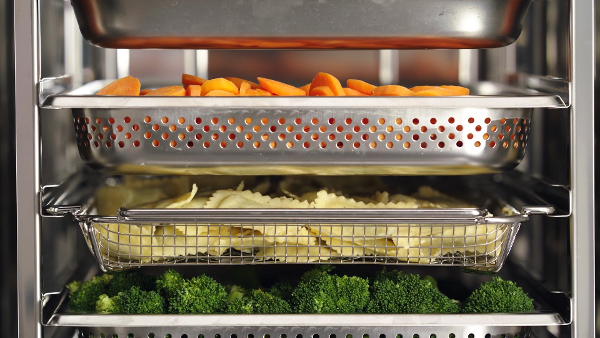The modern restaurant industry is experiencing unprecedented labor shortages across the globe. Restaurant owners in the United States continue to scramble to find good people for various kitchen positions. The COVID-19 Pandemic has prompted a meaningful change with some restaurants closing and others reducing their workforce. As businesses reopen, addressing how the foodservice labor shortage is impacting the entire industry is a continuous conversation.
Why is There a Foodservice Labor Shortage?
COVID-19 worsened a major issue within the foodservice industry. With wages being exceptionally low and employees not feeling valued, there was no incentive to remain long-term and pursue a commercial kitchen career. Now that the industry is recovering, a substantial portion of employees has permanently left the industry. Industry instability, limited room for growth, a lack of benefits, and low wages have contributed to high turnover rates long before COVID-19 arrived. The talent pool continues to get smaller and more competitive, especially now.
What this means is that owners and operators must work harder than ever to entice new hires. Employees place value on professional development, healthcare benefits, and good wages, all of which must be laid out early for entry-level employees. While this requires a higher upfront investment, emphasizing these aspects creates long-haul employees, instead of placing a temporary band-aid on short-term turnover.
Unfortunately, as the issue of not enough staff in the kitchen persists, owners and operators are left hung out to dry. Some lose money daily by not reopening until this labor shortage is addressed, while others are closing their doors permanently. Part of the solution to their problems may not rest in hiring and training more employees but in automation.
Intelligent Kitchen Equipment
As small business owners and restaurants try to predict life after the pandemic, all agree that reopening will need considerable planning and work. Luckily, integrating innovative kitchen equipment can help ease these challenges. Enter the iCombi Pro combi-steam, a multifunctional piece of kitchen automation from RATIONAL that can steam, grill, bake, roast, and boil various dishes simultaneously. The main benefits of this innovation include:
- Automatic self-cleaning saves time.
- Cutting back on food waste.
- Ensuring food consistency and quality.
- Minimizing human operation.
- No monitoring or food turning is required.
- Staff can focus on more manual aspects of the kitchen.
How the iCombi Pro Works
The iCombi Pro features advanced technology that allows cooks to grill lamb and chicken together or steam vegetables simultaneously. Built with automation in foodservice in mind, this advanced system checks the condition of the food compared to the desired result while calculating the cooking progress and adjusting the temperature. One of the iCombi Pro’s assistants, the iProductionManager, individually monitors every rack so cooking time can be adapted to the required result and quality. This equates to consistency with every use.
The system is incredibly easy to use with directions telling the cook what items can be cooked together and when to load and remove different foods while allowing the operator to determine if food should be ready at once or cooked individually as fast as possible. The system also notifies the operator when action must be taken so no settings adjustments or monitoring is required.
The iCombi Pro is so efficient and automated that the unit can be left alone for many hours or overnight allowing the chef to simmer, slow cook, braise, or roast specific dishes on the menu. When the combi-steamer is connected to RATIONAL’s internet platform, ConnectedCooking, the process can be remotely monitored via mobile device.
Automation found in intelligent foodservice equipment like the iCombi Pro is a step towards managing the foodservice labor shortage as well as a step towards running a smarter, more efficient commercial kitchen.









